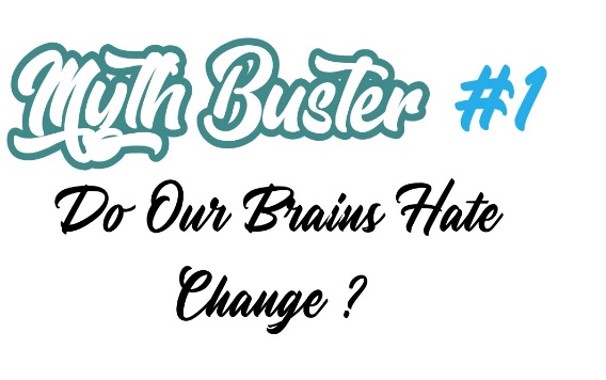THE CLAIM
Rock & Schwartz (2006) seem to be the creators of this claim. They state, ‘change is pain’ – asking people to do things differently creates error signals which induces stress & ‘amygdala hijacks’.
THE EVIDENCE
Their evidence used physical pain to induce stress. Other studies cited to support the claim use uncertainty & ambiguity to induce stress in card games. These may be closer to an OCM experience, but they did not induce an ‘amygdala hijack’. The affect stress has on learning is probably more relevant & revealing to OCM.
Our brains love surprises & novelty – it increases its repertoire of strategies to deal with future events. This helps us to survive & is called reflective learning. We also learn reflexively, matching our memories to current experiences. But this retrospective type of learning just embeds current habits. Research shows that shock & ‘cognitive overload’ shifts our brains away from reflective to reflexive learning.
THE VERDICT
So, the evidence shows our brains hate pain not change.
If we perpetuate the ‘hate change’ myth, we risk brushing over the nuances of how our people really learn & change.
If organisations want to change, they should orchestrate environments that create narrative, minimise cognitive overload & keep our brains curious.
THE REFERENCES
Behave – The Biology of Humans at Our Best and Worst – Robert M Sapolsky
https://www.frontiersin.org/articles/10.3389/fnbeh.2018.00127/full#B41
https://www.ncbi.nlm.nih.gov/pmc/articles/PMC3449003/
https://www.researchgate.net/publication/7431200_Neural_Systems_Responding_to_Degrees_of_Uncertainty_in_Human_Decision-Making
https://www.pnas.org/content/110/52/20941
https://www.ncbi.nlm.nih.gov/pmc/articles/PMC3529907/
https://www.sciencedirect.com/science/article/pii/S0301008217300369#fig0030
https://www.sciencedirect.com/science/article/pii/S0896627312008884


